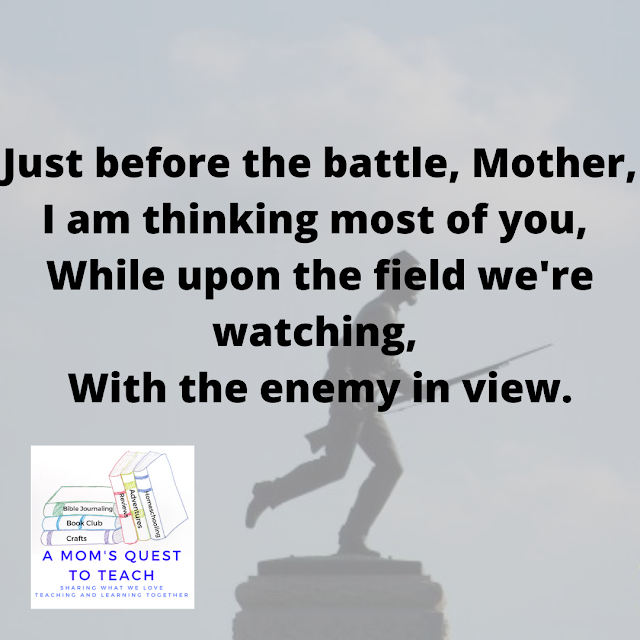Music plays an important role in history and how we study the past. We can learn much from listening to the music of different time periods, examining the music that was considered popular, and studying the instruments that were popular. The time period of the American Civil War is no different. There were songs that were primarily sung by Union soldiers and ones sung by Confederate soldiers. There were songs that helped inspire the population as well as those that provided comfort for those back home.
To meet the needs and desires of the soldiers and civilians during the American Civil War, songwriters and composers produced a variety of materials, including:
- Patriotic songs
- Comic songs
- Satires
- Protest songs
- Marching songs
- Parlor songs
- Drinking songs
- Abolitionist songs
- Spirituals
- Minstrels
- Sentimental songs
Sampling of Songs
- The Homespun Dress – words ascribed to Carrie Bell Sinclair – music "Bonnie Blue Flag"
- Weeping, Sad and Lonely (When This Cruel War is Over) – words by Charles C. Sawyer – music by Henry Tucker
- Charles Carroll Sawyer was one of the most successful Civil War song writers. This song was popular in both the North and the South.
- Goober Peas
- This anonymous song was referencing peanuts. There is no evidence that the song was actually published during the American Civil War, but it shed light on the shortness of rations of the Confederate soldiers.
- Grafted into the Army – words and music by Henry C. Work
- With the Conscription Act signed into law on March 3, 1863, all able-bodied males between the ages of twenty and forty-five would be subject to the draft. There was also a way to avoid the draft by finding a substitute draftee or paying $300 to the government.
- Hard Times Come Again No More
- Annie Laurie
- Just Before the Battle, Mother
- Richmond is a Hard Road to Travel
- The Vacant Chair



There is an important connection between music and memory. It is amazing how much we remember that we sing.
ReplyDeleteSo very true! We are actually using a musical program in our homeschool to help our children memorize a variety of subjects and topics.
DeleteFolk music, the music of a land and its people, is one of my very favorite genres and it was the bulk of the music I taught when I taught public school music for K-5. I adore how much history you can learn from the music of a people.
ReplyDeletehow interesting. I need to look up some of those and give a listen. (hoping they'd be on youtube).
ReplyDeleteMusic is so powerful. It can change our mood in an instant in good and bad ways. It doesn't surprise me too much to learn that music was a comfort and told stories of the war, but I hadn't really ever thought about it until reading this! Thanks for sharing!
ReplyDelete